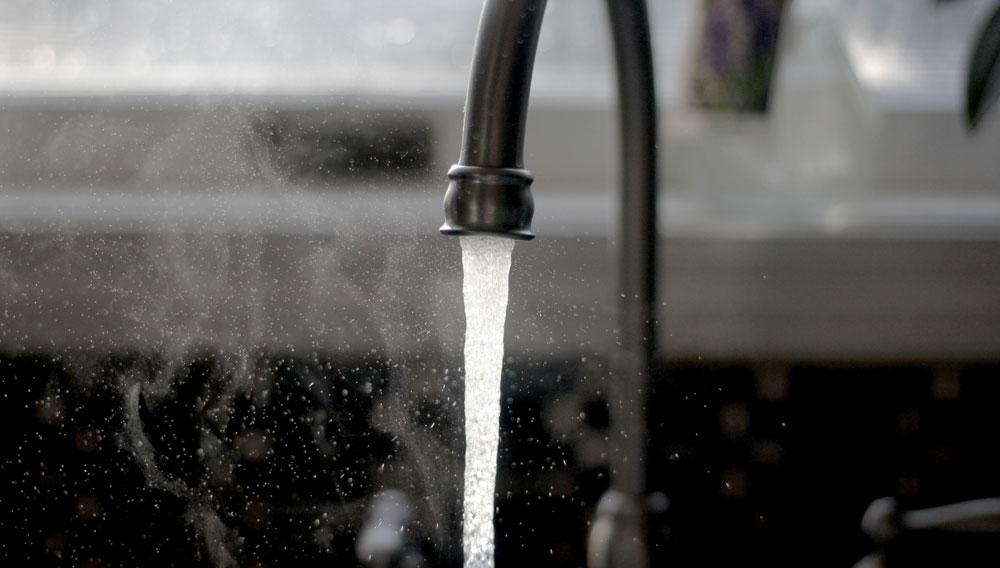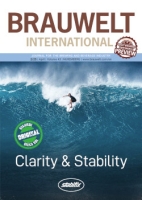In many breweries, degassed water is prepared using a vacuum, column or membrane water degassing process. The patented Danish Iso-Mix mixing system, primarily developed for mixing liquids and for cleaning vessels, can also be used for water degassing in combination with a stripping gas (CO2). The system, operating on the basis of the pressure degassing principle, is installed in Braustätte Mönchengladbach Oettinger for water degassing.
Many companies have realized water quality directly impacts their brand value. Water attributes influence the quality of the end product, the efficiency of the plant and, ultimately, product safety. Since climate change and sustainability are more spotlighted and focused in media, water follows at every turn. Water is not only an ingredient or process aid; it is also a utility and still a critical factor in process efficiency. Water is in direct contact to the largest tangible assets a company has, machinery and equipment. That’s why it is important to have a reliable partner who can support with expertise.
“The beverage industry ignores the financial crisis and achieves five percent growth.” What extraordinary news! Unfortunately, it did not come from Europe. This appeared in a daily newspaper in Sao Paulo reporting on the latest developments in the Brazilian beverage industry the day before the Brasil Brau 2009 began. The reason for this growth was two-fold: not only was the summer a sunny one, but consumers have also had more money in their pockets. Beer and non-alcoholic beverages have benefited considerably from this growth and have generated a ten percent increase in revenue.
Against the background of the difficult business situation many investments are under close scrutiny, including in the water treatment sector. The demands on the technology suppliers are increasing. BRAUWELT International talked to Bernd Hackmann, Business Unit Manager Beverages at Berkefeld, about the current challenges and technical developments in water treatment.
There is a growing awareness among the investment community of the relevance of water footprint as an indicator of corporate risk. During 2008 Citi, JPMorgan, Merrill Lynch and Morgan Stanley all issued water-focused research reports. The Ceres/Pacific Institute report (February 2009) took the discussion a step further with guidelines on sector-specific risks from water scarcity and the impacts of climate change.
For many years, systems for the production of biogas from waste water have been in operation in German breweries. A working group from within the German Brewers Federation wanted to facilitate the information exchange among their members at breweries practicing waste water treatment. Now the current manual is available.
The following article deals with fundamentals of planning breweries and mineral water operations. In the first part “From site to master plan”, details are provided about what specifications a factory site has to fulfil, how the special requirements of the sector can be reflected in basic layouts for functional configurations and what other criteria have to be taken into account at an early stage of planning (infrastructure provisions, routing configurations, integration into infrastructure, extendibility etc.). In the second part, special features associated with planning are examined, taking account of the statutory framework, hygiene requirements, equipment and other aspects specific to the sector.
drink technology+PET India 07, held in the Grand Hyatt, Mumbai, on November 29th and 30th, 2007, was organised by drinktec, PETplanet and VDMA, the German Association of Equipment Manufacturers. 41 well-known companies from 11 countries exhibited at the fair. In addition, a comprehensive lecture program was offered, divided into a symposium with emphasis on market-specific topics and a workshop with presentations from the areas of equipment and technology of beverage production and filling.
The relevance of brewing liquor for beer quality is often underestimated and its quality is often disregarded or ignored, even though the finished product beer consists of 90 - 92 percent water.
In Mid-october, 8 speakers from the department of research for engineering sciences for food products and biogenetic raw materials and the research center for brewing- and food quality, Weihenstephan organized a seminar for 80 participants at El Salvador featuring the latest results of research at Weihenstephan.
According to the Drinking Water Ordinance “water for human consumption” is understood as “drinking water” and as “water for the food industry”. To simplify matters this paper uses the term “drinking water”. It was realised early that the supply of the public with clean drinking water is extremely important. Hereby, the microbiological property plays an essential role.
For more than 30 years the Institute Romeis Bad Kissingen, Oberthulba, Germany, has been successfully active in the field of up-to-date production technologies, product quality and product safety for predominantly small beverage producing companies. With the change of name from Laboratory Romeis to Institute Romeis, Peter Romeis, managing partner, and Ingrid Schmittnägel, managing director, wanted to allow for the expanded business activities with analysis, consulting, service and pilot brewery. One more reason for Brauwelt to talk to both about the general direction of the institute and about its business activities.



